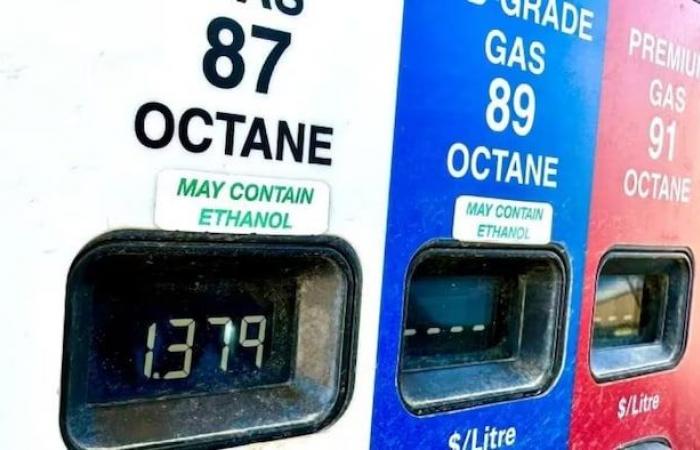Oil producers are learning to live again with lower prices. While the barrel of oil had even traded at more than $120 per barrel in 2022, this same barrel was trading at only $67 last week.
Since Russia's invasion of Ukraine in February 2022 and the subsequent surge in oil prices, the oil industry has enjoyed three lucrative years, marked by historic profits.
Although the sector continues to post strong profits, as some companies' latest quarterly results released last week showed, the days when oil companies were compared to money-printing machines seem to be over. about to end.
A noticeable drop at the pump
Oil prices are tumbling and many experts predict its value could decline further this year or over the next two years.
The drop in prices is also visible at gas stations across the country, where the average price of regular gasoline is $1.53 per liter, compared to $1.77 in April. according to data from Natural Resources Canada.
The decline in the value of black gold occurs as its production, particularly in Canada, increases more quickly than global consumption.
The period of high prices coincided with a trend in the oil industry where companies slowed their growth plans and instead focused on returning dividends to their shareholders.
Open in full screen mode
Regular gasoline prices have fallen by about 20 cents per liter on average across the country since May.
Photo : - / Kyle Bakx/CBC
Raoul LeBlanc is vice-president of S&P Global Commodity Insightsbased in Calgary. His analysis is that, even in this context of falling prices, the oil industry will have to continue to make juicy profits for investors and reduce its growth plans even further.
Canada's largest oil producers still post relatively strong profits, as their break-even point is around US$40 per barrel.
Over the past week, Imperial reported a third-quarter profit of US$1.24 billion. This profit was 1.60 billion last year in the same quarter.
Cenovus Energy for its part, announced a quarterly profit of 820 million US dollars. In the same quarter, in 2023, the company made a profit of $1.86 billion.
Many companies also say they are convinced that their efforts to reduce costs, repay their debts and reduce their expenses since the pandemic have prepared the industry to face a possible further fall in prices.
The balance sheets are in much better shape. We've definitely seen them improve over the last couple of years
noted Michael Bergeranalyst at Enverus, in Calgary.
All eyes are turned towardsOPEC and China
Oil production continues to rise around the world and could rise further if the Organization of the Petroleum Exporting Countries (OPEC) and its allies reverse previously announced production cuts that have supported prices.
At the same time, global demand is growing more slowly than experts expected.
The timidity of demand can be explained, among other things, by the fact that many countries are facing economic difficulties. This is particularly the case in China, where factory activity has contracted for five consecutive months.
What theOPEC will do in 2025 will influence the market. Apart from that, our customers are wondering about Chinese demand [de pétrole] and on its evolution next year.
Canadian oil producers would be able to mitigate some of the financial impact of lower oil prices due to the relative weakness of the Canadian dollar.
Completion of the pipeline extension Trans Mountainlast May, also gave a boost to Canadian oil prices.
With information from Kyle Bakx






